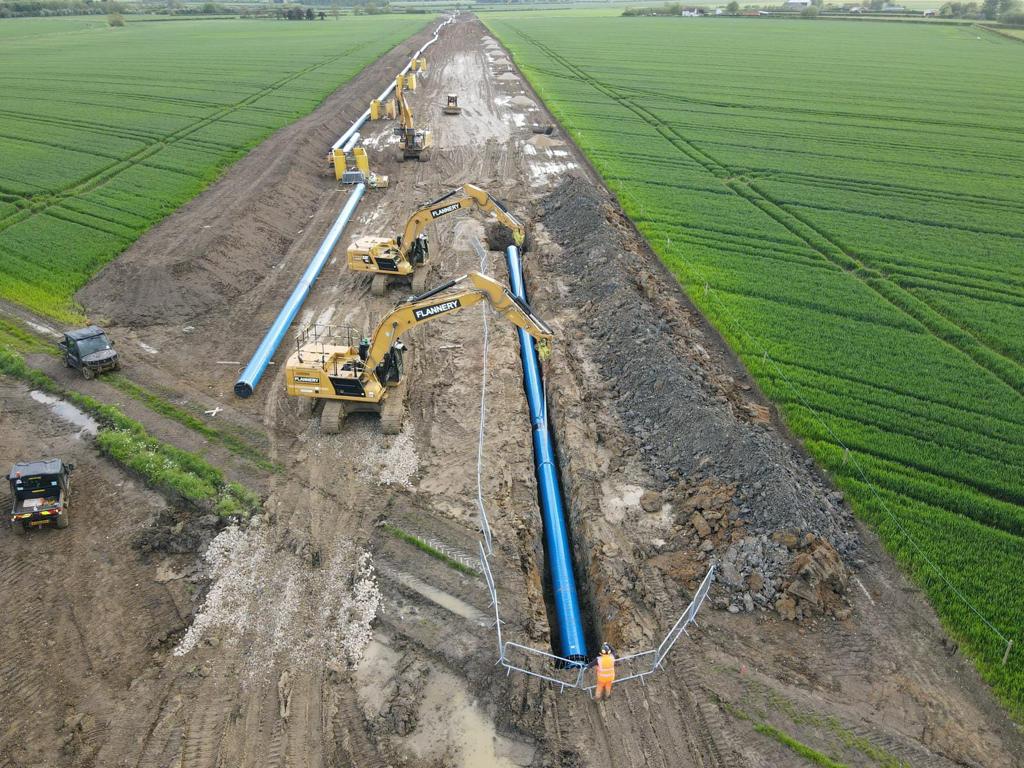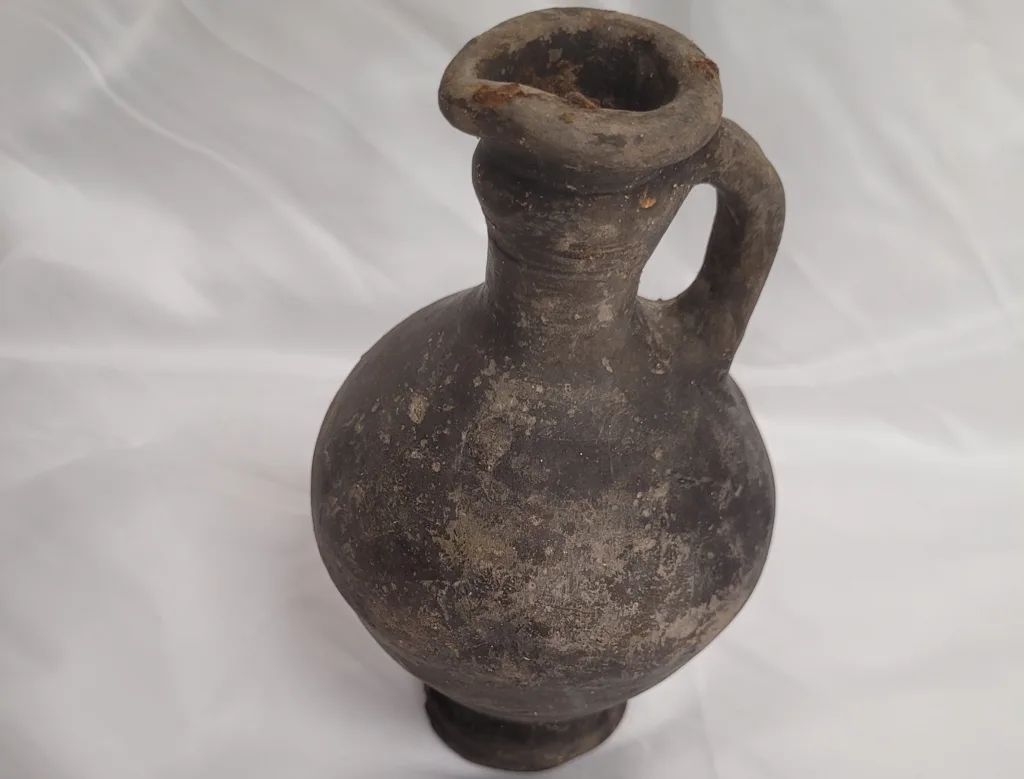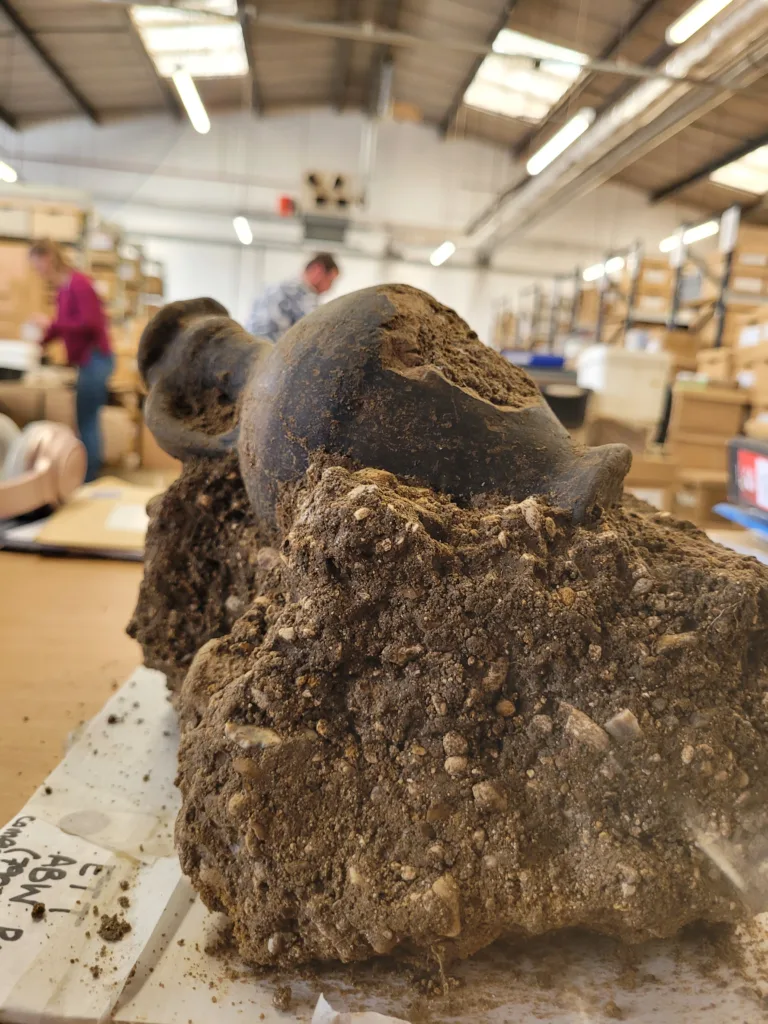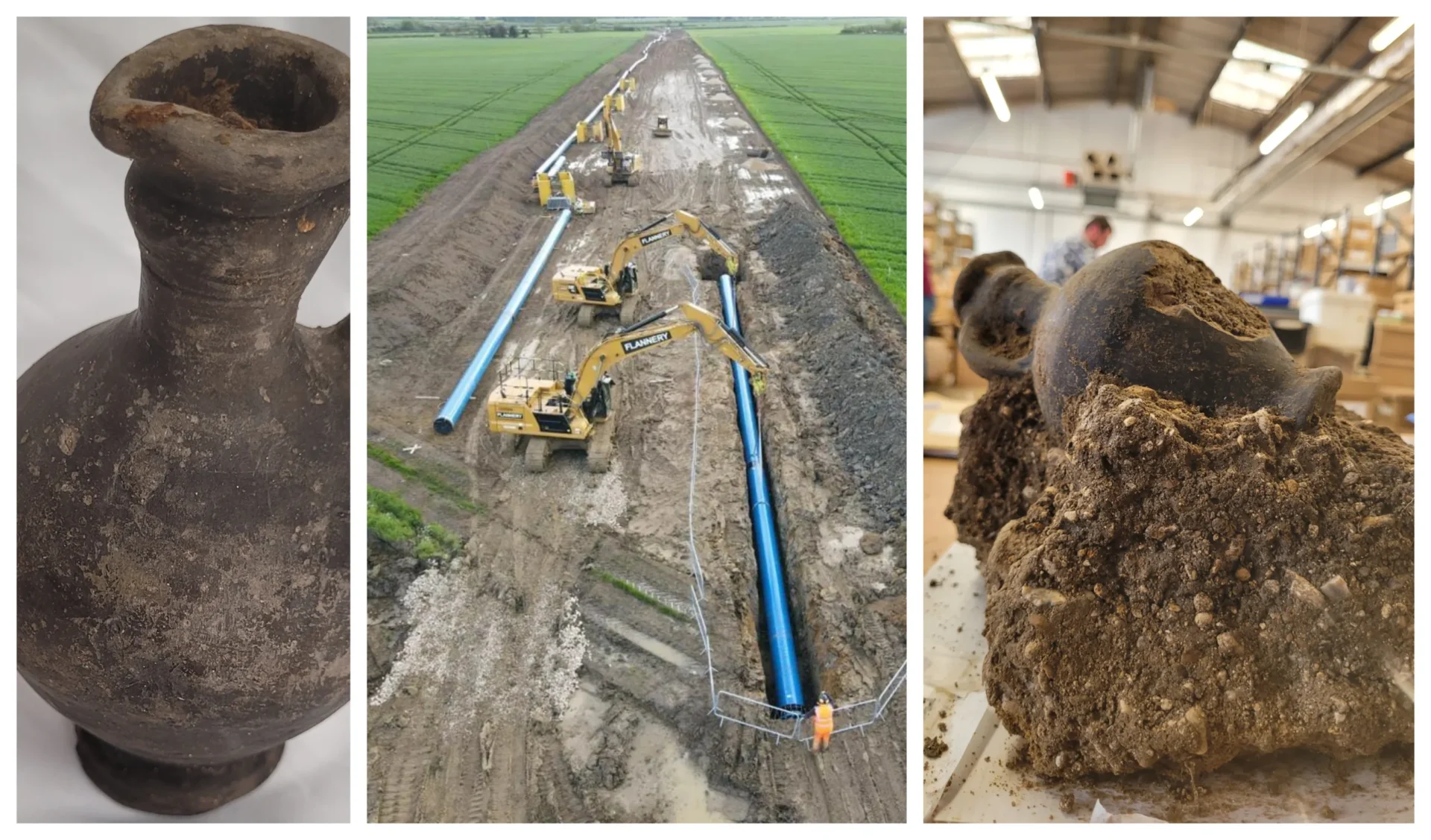A well-preserved jug – thought to be 2,000 years old – has been found during the construction of a new water main grid.
Archaeologists believe it is a ‘votive offering’ – something that ‘Romano-British’ people would have left for the gods to win favour with them.
Before that, the 30cm tall, burnished jug was probably used to store oil.
The term Romano-British describes people living in the UK when much of it was part of the Roman empire, between the years 43AD and about 410AD.

The jug was unearthed near Peterborough, along a 90-kilometre section of the grid linking Grantham, Peterborough and Downham Market.
Two copper rings and a decorative pin were also found. The rings were both intact and their original designs can still be seen. One still had some of the original enamel on it. Experts believe it is a ‘late Roman ring’. The coins are believed to date from the third or fourth centuries.

The water grid is a one of the UK’s biggest infrastructure projects.
Once complete, hundreds of kilometres of underground, interconnecting pipelines – from Elsham in North Lincolnshire to Essex and Suffolk – will move 265 million litres of water a day from wetter to drier areas.
It will run from Welby, east of Grantham, via a reservoir near Etton, north of Peterborough, to an existing water storage tank at Bexwell, which is close to Downham Market in Norfolk.
This pipeline will eventually join up with the others Anglian Water plan to build; at Welby – in the north – it will join our Lincoln to Grantham pipeline.

At Bexwell, in the south, it will join our Bexwell to Bury St Edmunds pipeline.
Anglian Water, says it is committed to leaving a long-lasting green and social legacy along the route.
Pippa Adams, archaeology lead for the team delivering the new water grid, said: “The jug was remarkable because of its good condition. We suspect it was used for oil and before being left and might have been owned by a wealthy family.

“We know from our survey work that Iron Age, Roman-era and medieval communities existed in many of the areas through which we’re laying our new water main network.
“Our discoveries will provide a treasure trove of data. They will tell us a lot about our ancient history and how Iron Age, Roman and medieval communities experienced day-to-day life, here in the East of England. They’ll also help enhance our understanding of our national heritage.”
Elsewhere, an Iron Age skeleton was found in Navenby, Lincolnshire, and other discoveries of ancient jewellery have been made.





















